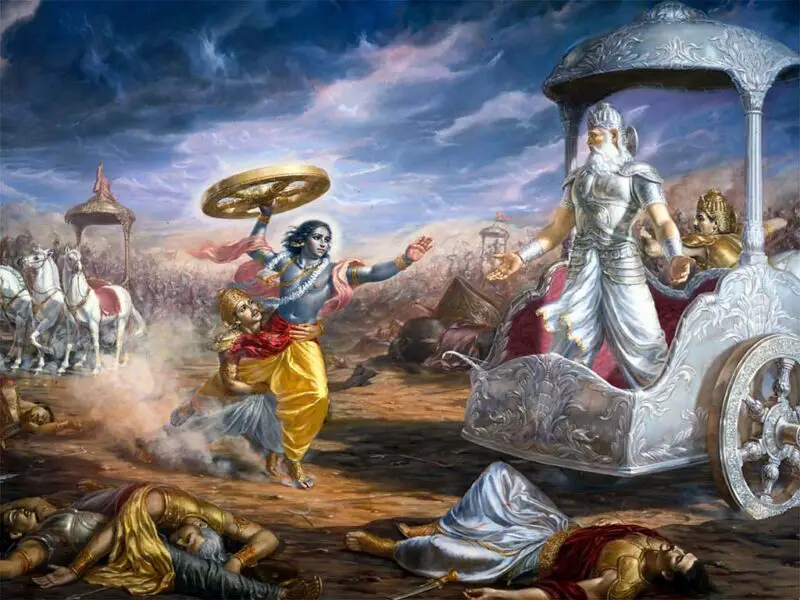The Mahabharata, India’s grand epic, is a treasure trove of stories that weave together themes of duty, love, and betrayal. One such episode that exemplifies cunning and intrigue is the Lakshagriha (House of Lac) incident. This explores this dramatic event and its significance in the larger narrative.
The Plot to Eliminate the Pandavas
The Pandavas, the five virtuous sons of Pandu, were exiled to the forest after their cunning cousin Duryodhana, the Kaurava prince, tricked them in a dice game. Duryodhana, consumed by jealousy and ambition, desired the throne that rightfully belonged to the Pandavas.
The Treacherous Invitation
During their exile, the Pandavas impressed King Virata with their valor and skills. Duryodhana, learning about their whereabouts, hatched a sinister plan. He convinced King Virata that cattle thieves were menacing his kingdom. Unaware of the Pandavas’ true identities, King Virata sent them to reside in Lakshagriha, a house made entirely of lac, a flammable resin.
The Impending Doom
Duryodhana’s plan was diabolical. He intended to set Lakshagriha ablaze while the Pandavas slept, eliminating them in a seemingly accidental fire. This would leave him with no rivals to the throne.
The Pandavas’ Escape
However, the Pandavas, known for their intelligence and resilience, were not easily outsmarted. They suspected foul play and devised an escape plan. Bhima, the strongest Pandava, dug a tunnel beneath the house. When Duryodhana ignited Lakshagriha, the Pandavas, along with the cattle they were entrusted to protect, escaped through the tunnel, unharmed.
Significance of the Lakshagriha Incident
The Lakshagriha incident exemplifies the constant struggle between good and evil in the Mahabharata. It showcases the Pandavas’ ability to overcome adversity through their wit and bravery. It also foreshadows the inevitable war between the Pandavas and the Kauravas, a conflict that would reshape the destiny of Hastinapura.
Conclusion
The story of Lakshagriha is a reminder of the importance of vigilance and the ever-present threat of deceit. It serves as a captivating chapter in the Mahabharata, leaving readers to ponder the depths of human ambition and the power of resilience.
Further Exploration
For a deeper understanding of the Mahabharata and its characters, visit Ritsin.com. Explore our website to discover more about the epic’s rich tapestry of stories and their enduring relevance.
